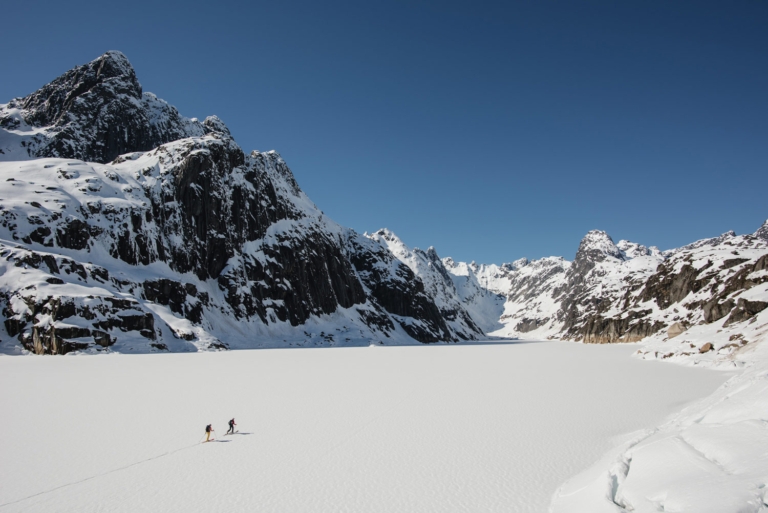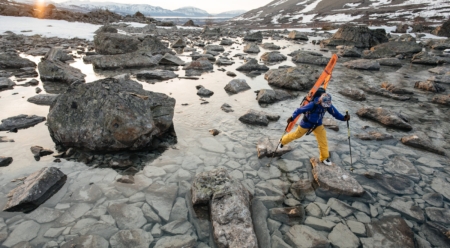Geography Lessons: On Exploring Unmapped (to You) Places
One Christmas, my brother gifted me a copy of 1,000 Places to See Before You Die. I hate those kind of books. He and his girlfriend could both name-drop dozens of the tick-listed destinations, but I was mostly perplexed. What did you do there?
Came, saw, conquered—never to look back. Judginess harshed my holiday spirit. It all seemed so trivial. They struck me as hollow victories. Not that I don’t have tick lists, but suggesting there’s a formula is a swindle, a slickly packaged con job promising downloadable GPS directions to happiness.
I heard someone insulted once in a way that has stuck with me ever since: “He just doesn’t know his own geography.” So effectively dismissive was that single statement. I thought, I don’t ever want to be thought of in that way. And it’s true. What is it to claim a destination with a selfie if you never stared your own fear in the face? What’s a tick list if you had to line up behind a hundred nameless strangers for your carbon-copy moment?
I’d trade knowing the whole world’s geography to at least have a sense of my own. Yet, I stare out my living room window past mountains whose names I don’t know and ridgelines I’ve never climbed, longing to go somewhere else, for places with strange names and stranger light, as if I might find a better-fitting version of myself somewhere out there, instead of here in the town I live in.
“You go to these places to dream,” says Leah Evans, “which is strange when you live in the places that are The Dream.”
Evans lives in Revelstoke, British Columbia, where she just bought a fixer-upper. Revelstoke is the boilerplate ski town. Around the world, skiers and snowboarders fantasize about—even fetishize—Revy. It is mecca for a skier. The kind of place where skis poke out of beds of rusty pickup trucks. The mountains are big and steep and wild, the backcountry terrain is endless, and no luxury hotels contaminate the downtown vibe, with its dark, beer-soaked pubs. And yet, Evans leaves her town regularly for places with less predictable snow and more challenging conditions. Why?
“The jaw-dropping moments are so much more common when you travel,” says Evans. “When you’re in completely unfamiliar terrain, everything is onsighting.”

Jasmin Caton and Leah Evans make a long white line on their quest for couloirs. Lofoten Islands, Norway. Photo: Garrett Grove
Even if conditions are better back home, the full sensory impact is lost when you stay local. Up against unfamiliar geography, terrain and climate, Evans and her team navigate the unknown with senses blazing, anchored by the small things they can be certain of, wherever they are—they are skiers, friends, adventurers, planet lovers. They might never come this way again. They may not always go deep enough to become indigenous, but their own personal landscapes will be altered. Until we go, we can’t see home for what it is. Or ourselves for that matter.
The truth is, we are often losers of places rather than collectors: rogue riverside campsites, beaches made difficult to access, realistic ski-town housing turned luxury condos, surf breaks ruined, childhood homes sold. So many places we’d like to return to become lost to time. Places with no coordinates, not even physically retraceable by our inner geographer. No one ever steps in the same river twice. The only constant is change. But home doesn’t change. At least that is our hope when we create one. So when we travel, we try to carry some feeling of belonging. Anytime I have gone somewhere without a harness or mountain bike or ski boots, I felt alien, a drifter. A familiar practice in a fresh location is grounding, just enough to retain a small measure of fluency to orient by.
“I love traveling through skiing,” says Evans. Experiencing places as a skier means that whatever else might be shaken through the day as we navigate our own foreignness in unfamiliar places, how to interact with a landscape is never stripped away.
Of course, the judgment of my brother was unfair. As if I don’t have 1,000 places of my own conjured by dog-eared guidebooks, penciled check marks next to routes. As if I haven’t lined up for a four-star multipitch or hiked up a ridge with a queue of boot-packing lemmings to get at the same fresh bowl.
For me, it’s not the where so much as the why. I am not altered by the sights, crowds, lists and roadside pullouts. My reckoning comes in the salt, the effort and surrender; the cruxy move I doubt I can make, but do; the memories that surface while paddling the long stretch of lake before the whitewater; the all-night slog through underbrush just to arrive at the skintrail, the path navigated by headlamp. In those moments I know something of myself, something I can rely on. At home or away.
There are no places left uncharted that satellites can’t focus in on, that thermal imaging can’t penetrate. Except maybe our minds. And it’s where our unmapped dreams and the dream places come together that the intrepid truly shine. I think it’s what my brother was trying to tell me: The more you experience, the more sense of yourself you get. Don’t worry about how. There’s no prescription, no single path to knowing yourself. Geography lessons are everywhere.
This story first appeared in the 2017 Patagonia Mountain catalog.

